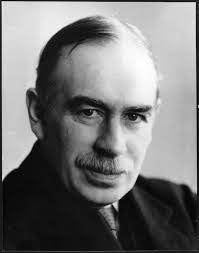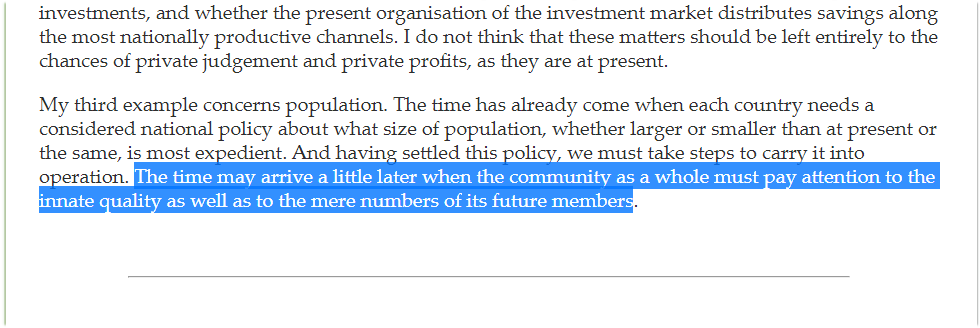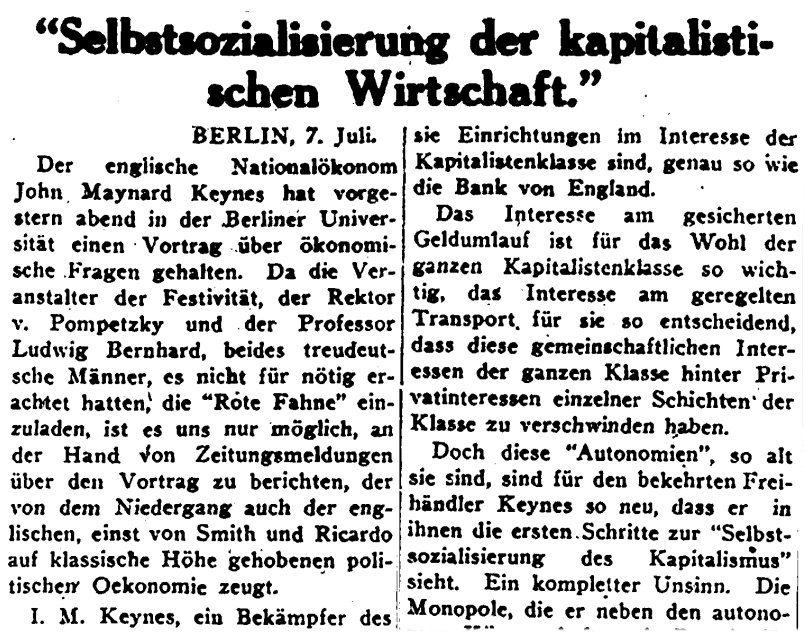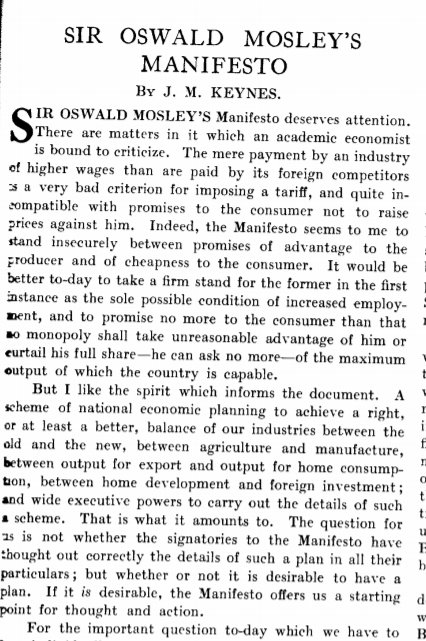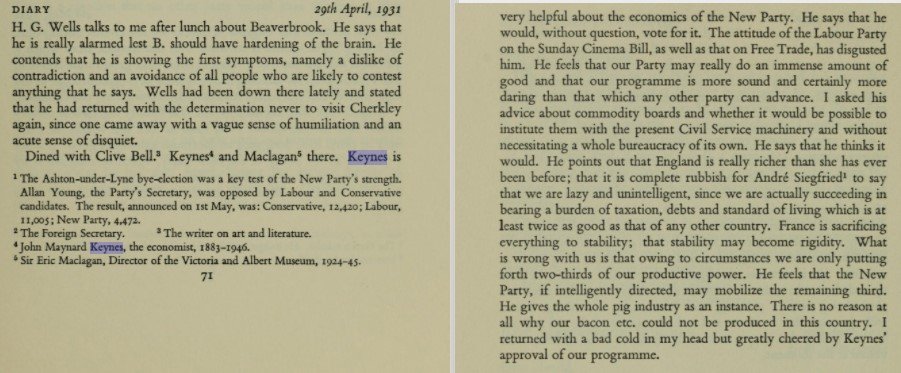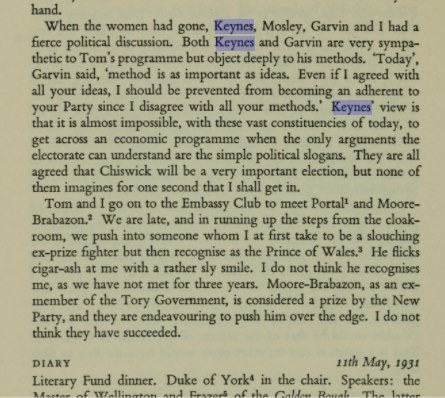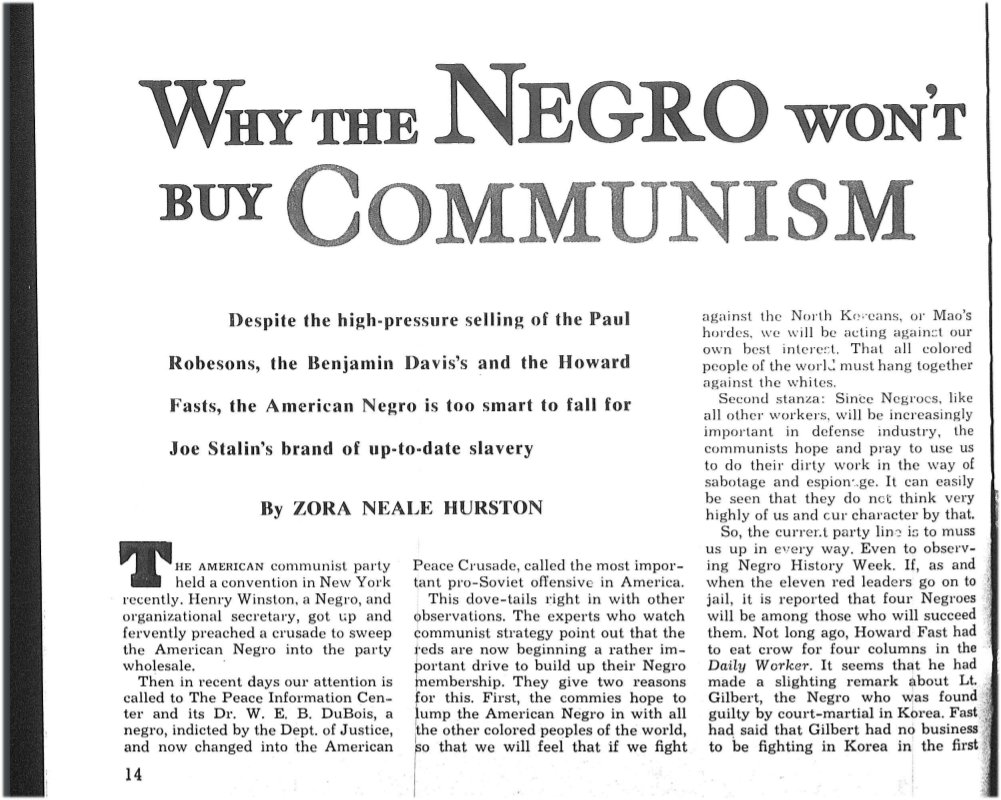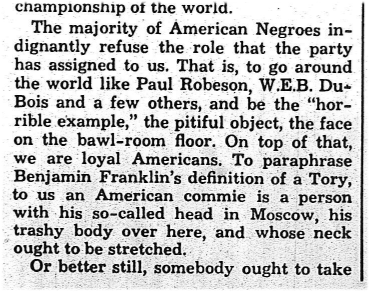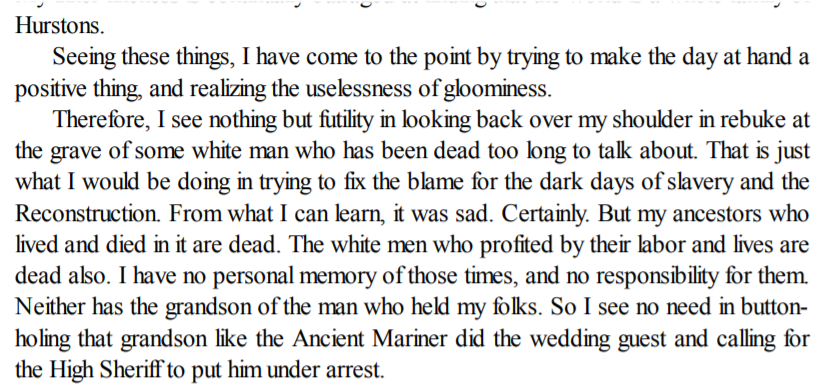
I've observed before that this "Health Nerd" guy is stunningly incompetent when it comes to statistical inference. He continues to confirm that here.
The problem with these modeling calibration studies is that they are sensitive to the hard-coded assumptions of their own model.
The problem with these modeling calibration studies is that they are sensitive to the hard-coded assumptions of their own model.
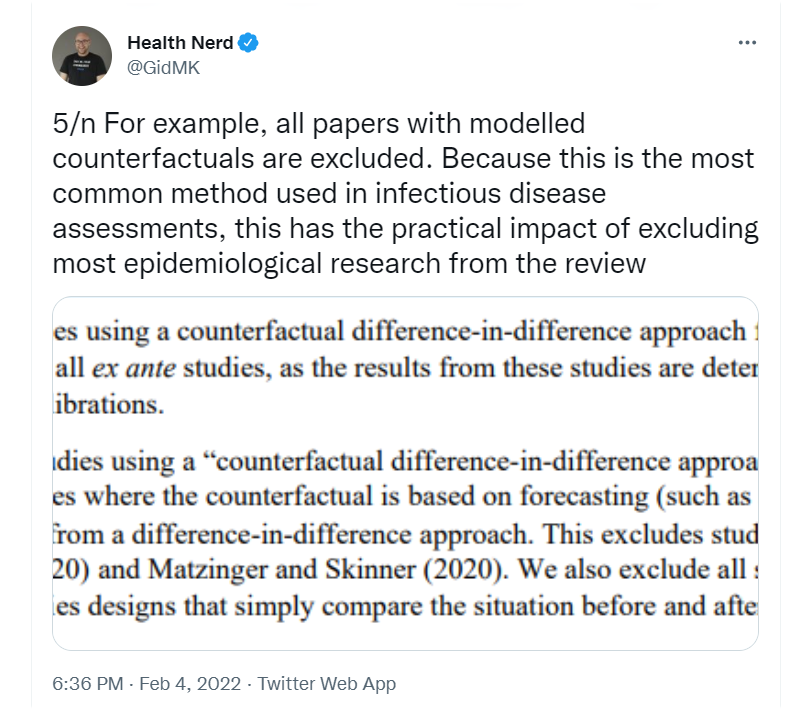
They are not true "counterfactual" studies because the claimed counterfactual is usually just the projection of their own simulation model in the absence of lockdowns. IOW, they use their own model to "prove" itself.
It is true that these approaches are common in epidemiology journals. But that's a fault of the epidemiology subfield - it is still living in the statistical dark ages when it comes to doing causal inference.
Hanke et al explain their reasoning for excluding modeling calibration studies in detail, and it's entirely sound: modeling calibration studies are basically junk, premised on a circular self-reaffirming statistical approach.
Link here for those who want to follow, assuming he doesn't block you for pointing out that he's functionally innumerate when it comes to statistical analysis.
https://twitter.com/GidMK/status/1489744763850936324
• • •
Missing some Tweet in this thread? You can try to
force a refresh


